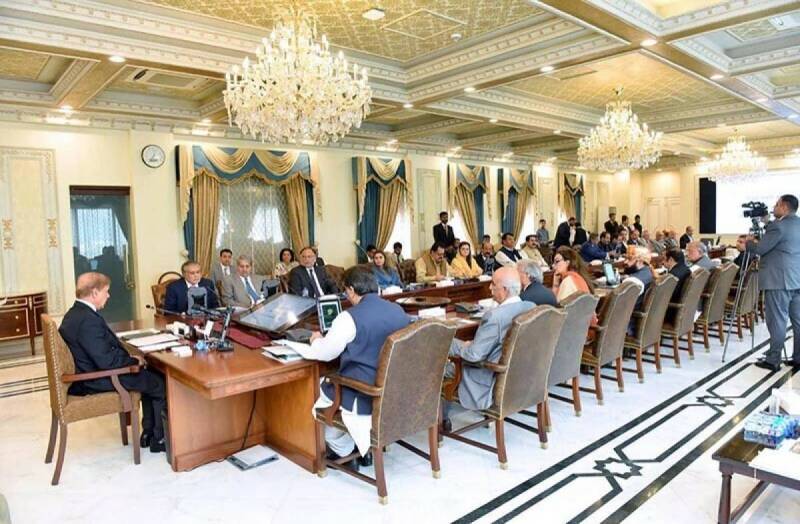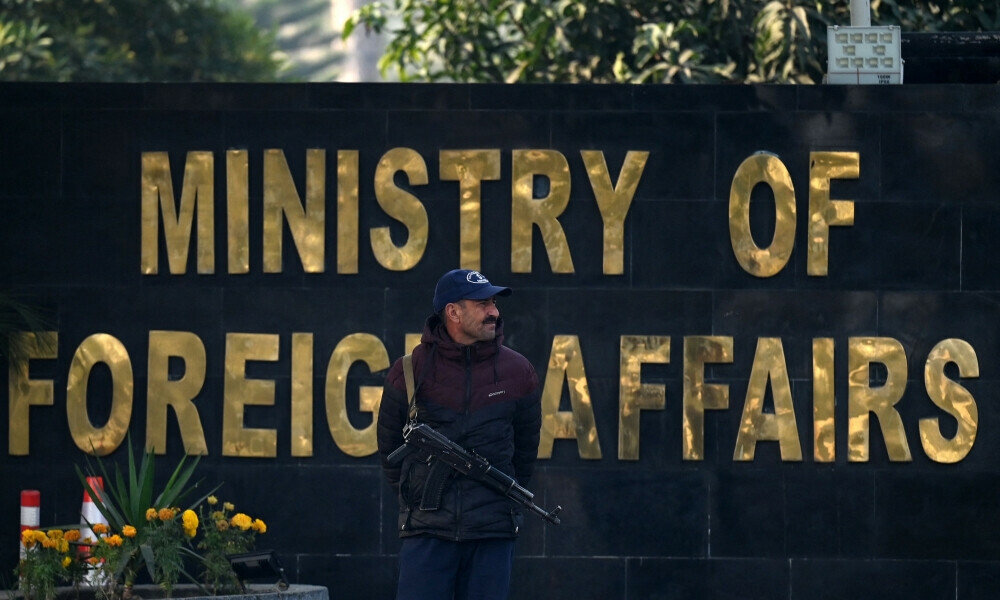Prime Minister Shahbaz Sharif has summoned a federal cabinet meeting for tomorrow, aiming to address the intensifying political situation in the country. One of the primary items on the agenda is the potential ban on the Pakistan Tehreek-e-Insaf (PTI) party, which could significantly alter the political landscape of Pakistan.
According to insiders, the cabinet will thoroughly discuss the current political turmoil, focusing on whether to approve the ban on PTI, a move that has been gaining momentum in recent weeks. The meeting will also consider initiating proceedings under Article 6 of the Constitution against former President Arif Alvi, PTI founder Imran Khan, and former National Assembly Deputy Speaker Qasim Suri.
Federal Minister for Information and Broadcasting, Ataullah Tarar, recently revealed in a press conference that the government is serious about imposing a ban on PTI. Tarar stated that legal action under Article 6 would target former President Alvi, Imran Khan, and Qasim Suri, highlighting the gravity of the accusations against them. The approval from the cabinet would pave the way for a reference to be sent to the Supreme Court, escalating the legal battle.
Tarar also mentioned that the government would consider additional measures, such as blocking the passports and identity cards of the accused and passing a parliamentary resolution to reinforce these actions. All these steps, he emphasized, would be carried out within the legal framework of the Constitution and the law.
The call for the cabinet meeting comes amidst a backdrop of increasing political tension. PTI, once a dominant force in Pakistani politics, now faces an existential threat. The potential ban could have far-reaching consequences for the party and its supporters, reshaping the political dynamics of the country.
The meeting is expected to be highly charged, with ministers debating the merits and risks of such a drastic move. Proponents of the ban argue that it is necessary to uphold the rule of law and address alleged violations by PTI leaders. Critics, however, warn that banning a major political party could deepen divisions and lead to further instability.
In the lead-up to the meeting, political analysts have weighed in on the potential outcomes. Some believe that the government’s actions are justified, given the serious nature of the allegations against PTI leaders. Others caution that the move could backfire, galvanizing PTI supporters and leading to widespread protests.
The situation has also drawn international attention, with foreign observers closely monitoring developments. The implications of a PTI ban extend beyond domestic politics, potentially affecting Pakistan’s relationships with its allies and partners.
As the cabinet prepares to convene, the atmosphere in Islamabad is one of anticipation and uncertainty. The decision made during this meeting could set a precedent for how political dissent and legal accountability are managed in Pakistan.
In addition to the PTI ban, the cabinet will review other pressing issues. Economic challenges, security concerns, and ongoing efforts to address the COVID-19 pandemic are all likely to feature in the discussions. The government must balance these immediate priorities with the longer-term implications of its actions against PTI.
The outcome of the cabinet meeting will be eagerly awaited by all stakeholders. For PTI, the stakes are incredibly high, with the party’s future hanging in the balance. For the government, the decision represents a critical test of its ability to navigate a complex and volatile political landscape.
Regardless of the decision, it is clear that Pakistan is entering a new phase of its political journey. The actions taken in the coming days will shape the country’s path forward, influencing its democratic processes and the broader struggle for power and accountability.




